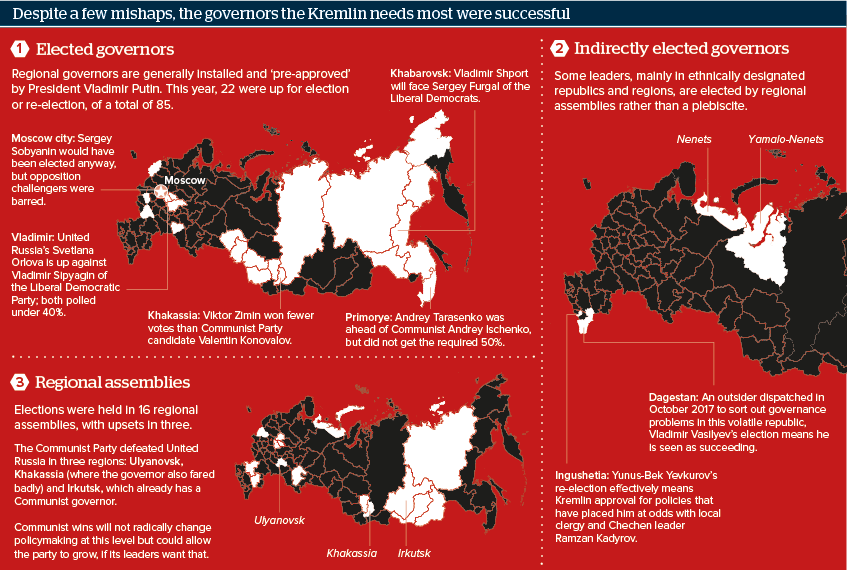Kremlin will survive United Russia’s setback
Run-offs and defeats were not in the ruling party’s plan, but it made little effort to win over disgruntled voters
Source: Russian Central Electoral Commission; media reports
Outlook
Defeat in three provincial assembly elections and enforced run-off votes facing four governors are a major setback for the United Russia party and by extension its leader, Prime Minister Dmitry Medvedev, who has been almost completely absent from campaigning.
The results are not such a reverse for President Vladimir Putin, as Communist Party election successes are a manageable way of channelling public anger about pensions reform, while the non-parliamentary opposition gained no ground. Nor will Putin see the outcome as invalidating his policy of installing loyal technocrats, often outsiders, to make the governors into managers rather than politicians.
Impacts
- Moscow mayor Sergey Sobyanin’s 70% victory enhances his position as a possible successor to Putin.
- The Kremlin and United Russia are sending teams to rescue candidates facing run-offs in Vladimir, Khabarovsk and Primorye.
- No such salvage effort is planned in Khakassia, where incumbent Viktor Zimin seems on his way out.
- The Kremlin will worry but has few ways of responding if low turnout is as widespread as initial reports suggest.
See also
- Prospects for Russian domestic politics in 2019 - Nov 30, 2018
- Russia will avoid Ingushetia intervention if it can - Nov 12, 2018
- Russian poll results challenge technocratic approach - Oct 17, 2018
- Russian election reverses warn Kremlin of protest vote - Sep 24, 2018
- Kremlin seeks closure to Russian regional poll fiasco - Sep 20, 2018
- Russian president may regret 'owning' pension reform - Sep 20, 2018
- Prospects for Russian politics to end-2018 - Jun 13, 2018
- More graphic analysis
